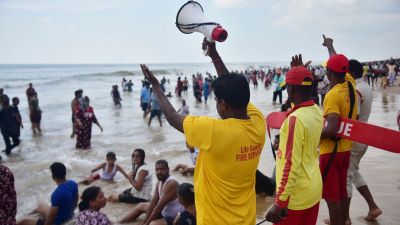Pune boy to get National Youth Award; only one from Maharashtra this year
His achievement-training nearly 5,000 women in the city, mostly slumdwellers, about menstrual hygiene through an NGO, Roshni, which he founded when he was merely 18 years old.
 Pravin Nikam
Pravin Nikam
For 23-year-old Pimpri resident Pravin Nikam, there couldn’t have been a better New Year gift than a letter that came by post a few days ago. A letter that brought him news of his selection among 25 people in the country for the National Youth Award that he will receive on Tuesday in Raipur, Chhattisgarh, at the hands of Prime Minister Narendra Modi.
His achievement-training nearly 5,000 women in the city, mostly slumdwellers, about menstrual hygiene through an NGO, Roshni, which he founded when he was merely 18 years old. And for this, Nikam is the youngest recipient of this award besides being the only one from Maharashtra to receive the same in 2015-2016.
“I feel really humbled to be honoured with such a big award and I never thought that an effort which started in my neighbourhood would get so much recognition. Though till today I have done many social projects, but this cause is closest to me. Actually menstrual hygiene is what prompted me to begin Roshni,” says Nikam.
It was on a visit to Assam that Nikam met a girl called Roshni who was forbidden to attend school during her periods and after fighting for her rights with villagers there, he felt his job wasn’t over. So he initiated the Period Project which would help generate discussion and dispel myths on menstruation besides coming up with a disposal mechanism for sanitary napkins.
To ensure that he could speak credibly on the subject, Nikam received training in gender equality from Babasaheb Ambedkar Research and Training Institute which covers menstrual hygiene. But he didn’t stop there.
Amongst his kitty of projects include a Right to Pee Campaign for free clean and safe public toilets for women, and a 24*7 helpline that provides writers for visually-impaired students, converting literature into Braille books for free.
This isn’t the first award to come his way either. In 2013, Nikam was nominated as the global youth ambassador by the UN and has represented Asia at the Commonwealth Youth Council in 2015.
“Of late, I am training women in making paper bags which has made them financially independent, and am also involved in some environmental projects, but the bulk of our work is now moving towards health and education issues in nearby rural areas,” he said.







